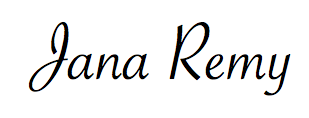 While I was at THATCamp DHSoCal last weekend, I heard numerous attendees refer disparagingly to their “IT Guy” or “those guys at IT.” The references made me uncomfortable because I am an affiliate of IS&T at Chapman (and I’m not a “guy”) and because the term was generally used to indicate staff who are unhelpful and uninclined academically. The term “IT Guy” often appeared in the same sentence as “Blackboard” to compound the insult.
While I was at THATCamp DHSoCal last weekend, I heard numerous attendees refer disparagingly to their “IT Guy” or “those guys at IT.” The references made me uncomfortable because I am an affiliate of IS&T at Chapman (and I’m not a “guy”) and because the term was generally used to indicate staff who are unhelpful and uninclined academically. The term “IT Guy” often appeared in the same sentence as “Blackboard” to compound the insult.
Apart from my concern that Chapman faculty might feel negatively about me or others from my Office because of our IT role, this trend of dissing IT staff is especially disconcerting for those of us who inhabit the Digital Humanities. Because, for our projects to be both attainable and sustainable we very much need IT support and resources. Disparaging (or dehumanizing) those who have technical roles at the university can only widen gaps that might already exist in the organizational structure of our campuses, and thereby reinforce barriers to team-building and project progress.
Perhaps I am particularly sensitive to this issue given that I’ve worked so hard over that past four years at Chapman to gain the trust of faculty and staff. That work has included my attempt to speak and write in ways that don’t alienate others by using technical jargon or assuming a certain level of academ-ese. Also, I purposefully refer to IT staff by their names, roles, and/or titles rather than as the generic “IT guy” (just as I do when I discuss faculty or administrators).*
Because, while the divides between “operations” and “academics” are undoubtedly deep at many campuses, that does not mean that there should not be efforts to effect change, and using inclusive language to describe our colleagues is one big step towards doing so.
*at Chapman we have a CIO who is a woman, about half of IT directors are women, and many of the affiliated technical staff are also women–I suspect that it is a rare IT division that does not include many women.


